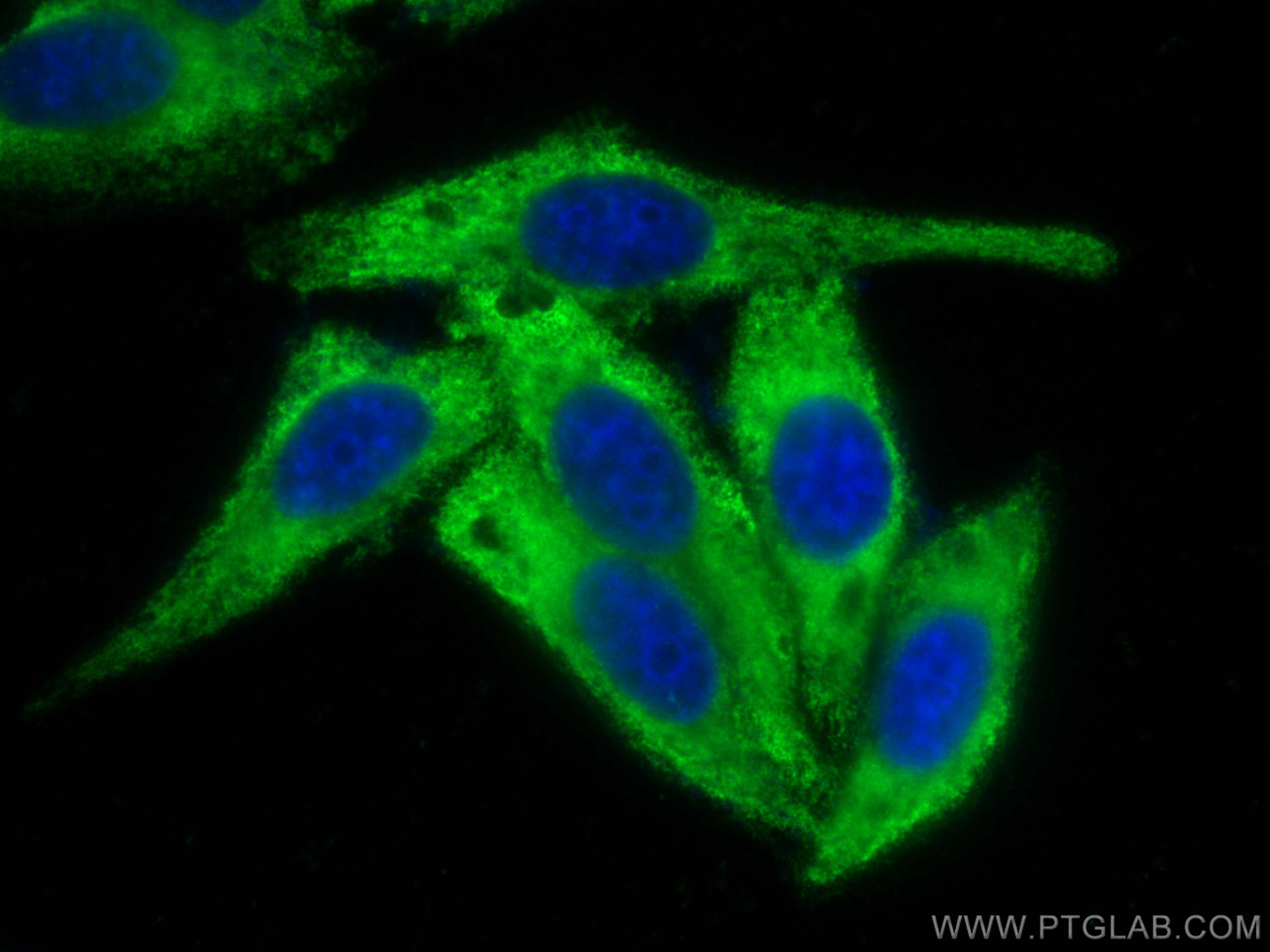验证数据展示
经过测试的应用
| Positive IF/ICC detected in | HepG2 cells |
推荐稀释比
| 应用 | 推荐稀释比 |
|---|---|
| Immunofluorescence (IF)/ICC | IF/ICC : 1:50-1:500 |
| It is recommended that this reagent should be titrated in each testing system to obtain optimal results. | |
| Sample-dependent, Check data in validation data gallery. | |
产品信息
CL488-67497 targets GNB3 in IF/ICC applications and shows reactivity with Human, Mouse, Rat, Pig samples.
| 经测试应用 | IF/ICC Application Description |
| 经测试反应性 | Human, Mouse, Rat, Pig |
| 免疫原 | GNB3 fusion protein Ag7050 种属同源性预测 |
| 宿主/亚型 | Mouse / IgG1 |
| 抗体类别 | Monoclonal |
| 产品类型 | Antibody |
| 全称 | guanine nucleotide binding protein (G protein), beta polypeptide 3 |
| 别名 | GNB3, Transducin beta chain 3 |
| 计算分子量 | 37 kDa |
| 观测分子量 | 35-37 kDa |
| GenBank蛋白编号 | BC002454 |
| 基因名称 | GNB3 |
| Gene ID (NCBI) | 2784 |
| RRID | AB_3084352 |
| 偶联类型 | CoraLite® Plus 488 Fluorescent Dye |
| 最大激发/发射波长 | 493 nm / 522 nm |
| 形式 | Liquid |
| 纯化方式 | Protein G purification |
| UNIPROT ID | P16520 |
| 储存缓冲液 | PBS with 50% glycerol, 0.05% Proclin300, 0.5% BSA , pH 7.3 |
| 储存条件 | Store at -20°C. Avoid exposure to light. Stable for one year after shipment. Aliquoting is unnecessary for -20oC storage. |
背景介绍
Guanine nucleotide-binding proteins (g proteins) are involved as a modulator or transducer in various transmembrane signaling systems, by integrating signals between receptors and effector proteins. G proteins are composed of an alpha, a beta, and a gamma subunit. This gene encodes a 34 kd beta subunit, being expressed in all tissues. Beta subunits are important regulators of alpha subunits, as well as of certain signal transduction receptors and effectors.
实验方案
| Product Specific Protocols | |
|---|---|
| IF protocol for CL Plus 488 GNB3 antibody CL488-67497 | Download protocol |
| Standard Protocols | |
|---|---|
| Click here to view our Standard Protocols |
